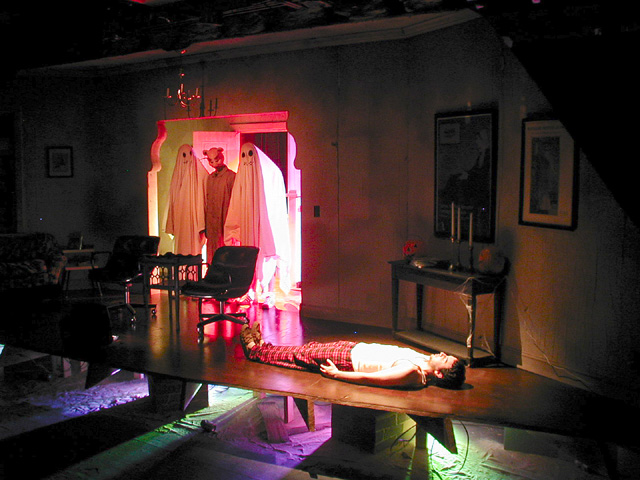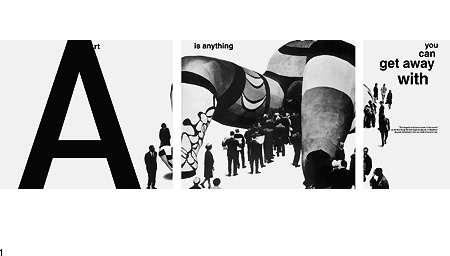February 19th 2006 Posted in
Reading  Â
Â
The following is from the Village Voice review of the original production of 70 Scenes of Halloween in 1980:
Jones’s deadpan farce with intellectual aspirations ends long after it should, but on the other hand it could end anywhere. Time in the play is out of joint, non-continuous, as fragmented as a series of television programs. It does not flow forward with the certainly of out-and-out narrative; events follow one another in a series of near repetitions, so that you feel they are overlapping.
Unlike most plays, 70 Scenes does not seem to be taking place in time at all, but in space. It is as if each scene were a discrete sketch traced onto the thinnest of translucent paper, and then all 70 of the tracings were juxtaposed one on top of the other in order to create a complex, multilayered drawing in which the lines were sometimes a little fuzzy but the total image was deep and singular and memorable.
It is also possible to interpret the play with old fashioned Freudian tools. Then you would say that the Beast and the Witch personified the sexual underminds of Jeff and Joan, although I would prefer them to remain the separate creatures they so palpably are on stage.
Although he gently needles them, Jones seems to have an affection for the characters he created. One thing I take him to be saying is this: In a sexual age which rightly relegates D. H. Lawrence to a dim time of prerevolution, the dominion of the libido is finally populated with likable citizens.
Jopes’ website has complete editions of other plays of his, as well as his provocative manifesto against mainstream drama, “Geezer Theater”: http://ourworld.compuserve.com/homepages/diogenes_/homepage.htm.
















 Comments(3)
Comments(3)
